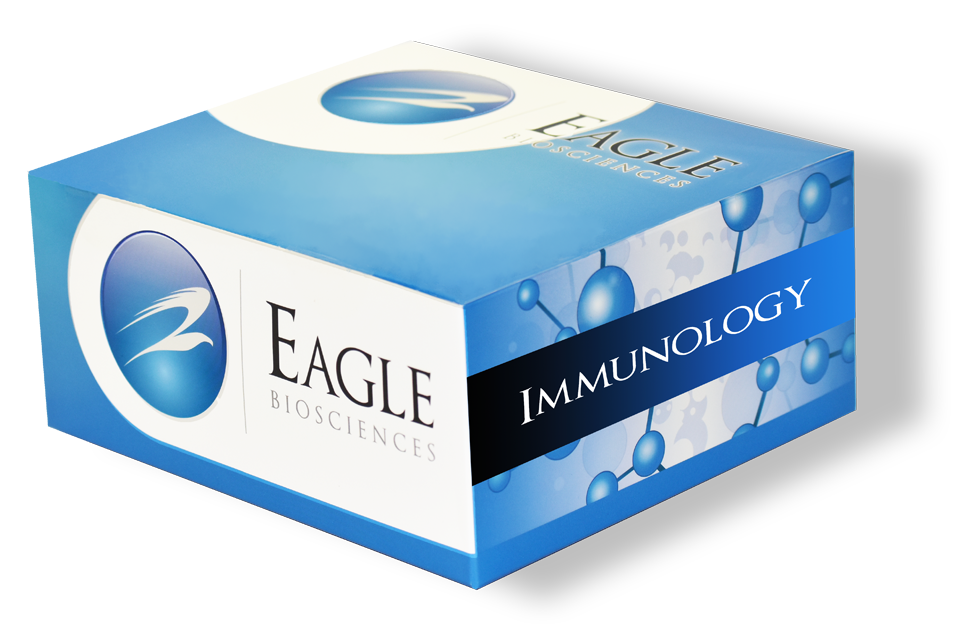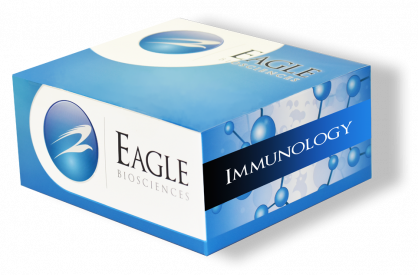Anti-Beta2 Glycoprotein 1 IgM ELISA
The Anti-Beta2 Glycoprotein 1 IgM ELISA is For Research Use Only
Size: 1×96 wells
Sensitivity: 0.11 AU/mL
Dynamic Range: 10 – 160AU/mL
Incubation Time: 2 hours
Sample Type: Serum, Plasma
Sample Size: 10 µL
Controls Included
Assay Principle
Anti Beta 2 Glycoprotein 1 IgM ELISA Assay Kit is based on the initial binding of the antibodies present in calibrators, controls or pre-diluted samples to the beta 2 Glycoprotein 1 coated on the inner surface of the microplate wells. After 60 minutes of incubation, the microplate is washed with a wash buffer to remove the non-reactive serum components.
Then an anti-human-IgM horseradish peroxidase-conjugated solution recognizes IgM class antibodies bound to the immobilized antigens. After a 30 minutes incubation the excess of enzyme conjugate, which is not specifically bound, is washed away with the wash buffer.
Finally, a chromogenic substrate solution containing TMB is dispensed into the wells. After 15 minutes of incubation, color development is stopped by adding the stop solution. The solution turns yellow at this point. The level of color is directly proportional to the concentration of IgM antibodies present in the original sample. The concentration of IgM antibodies present in the sample is calculated through a calibration curve.
Related Products
Anti-Beta2 Glycoprotein 1 IgG ELISA
Anti-Beta 2 GP1 ELISA
Anti-Beta-2 GP-I Screen ELISA
Product Developed and Manufactured in Italy by Diametra


